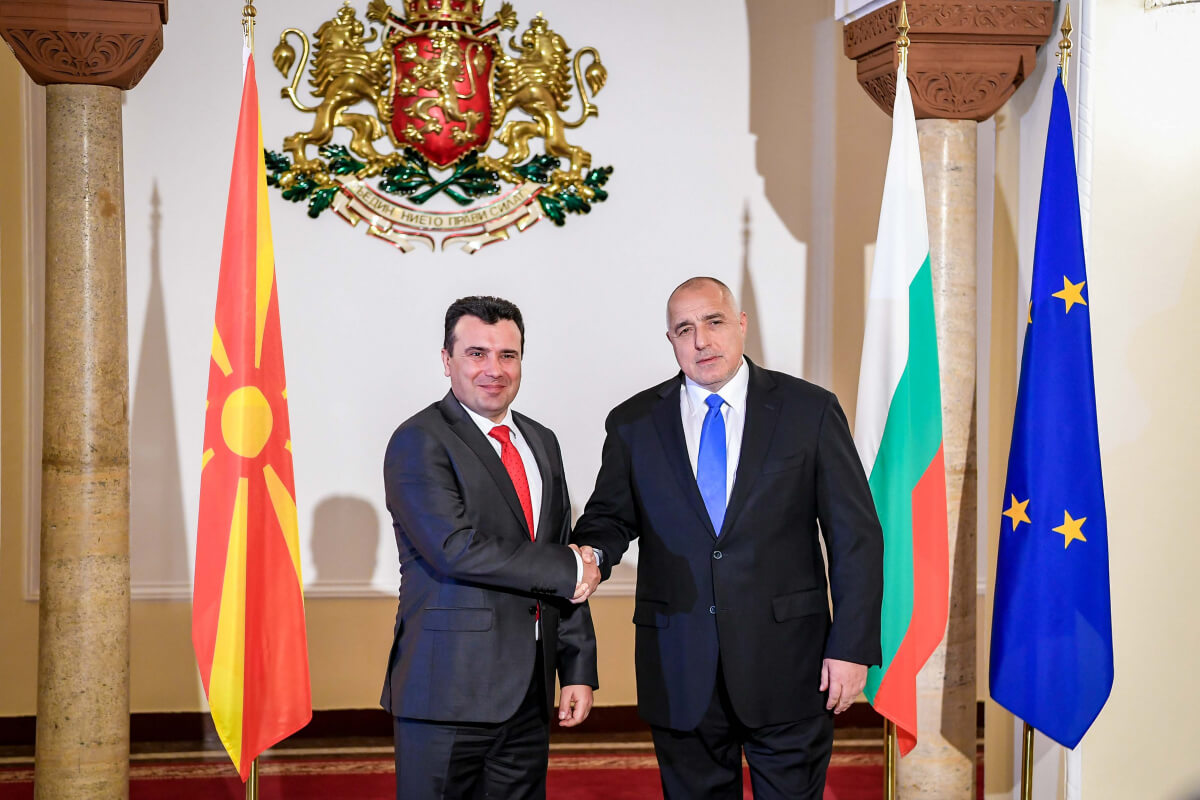Macedonians are emotional people and probably had a hard time withstanding the sudden cooling they were exposed to in just a few days – from enthusiasm for the first participation in the next European Football Championship, to another, new blockade on their path to EU membership. It is possible that these things are not comparable and that they do not interest all Macedonians equally, but there are some common symbols in Macedonia’s steps towards Europe, both football and political. It is difficult, long-lasting and they have been waiting for success for decades, but for now there are results only in football, not political qualifications.
The fact that Bulgaria blocked the opening of EU accession negotiations with Macedonia is neither a novelty nor a surprise. There is a long history of neighborly stumbling on the path to gaining EU membership. Slovenia blocked Croatia because of the border in the Piran Bay, so Croatia, as soon as it became the EU member, blocked Serbia’s negotiations, and Bulgaria did that briefly three years ago, because of the position of its minority in Serbia. Greece held Macedonia for decades without any chance of integrating into Europe and NATO, until it changed its name. All the while, the EU was repeating that unresolved neighborly problems must not be a reason for an EU member to veto its non-EU neighbor. But who would believe that, especially after the Bulgarian veto?
So, the problem is not that Bulgaria is sabotaging Macedonia’s accession, but the problem is that the EU does not have the desire and the way to discourage and prevent such behavior of its full members. To the fact that Bulgaria is “blackmailing” Northern Macedonia with historical and identity issues, Germany, as the current EU presidency, is responding coldly and disinterestedly – let them solve it themselves, and we will help if they call us…
In this case, the EU shows the greatest and most open disinterest so far in opening the door to new members from the Balkans. Neither Brussels, nor the main European capitals are trying to find comforting, optimistic words for those who are still in the waiting room, they simply have no will for that anymore. What they are really facing and where it’s “burning” are blockades and veto votes within the EU itself. How to deal with Hungary and Poland, which are blocking the adoption of a giant budget of 1.8 trillion euros, because its use is conditioned by respect for human rights and the rule of law. One veto, the Bulgarian one, concerns only the citizens of Northern Macedonia and perhaps their Balkan neighbors, but the other, Hungarian and Polish, concerns the whole of Europe, the rich one. Although their ranges are different, their essence is the same – they do not bring anything good.
Europe has been hitting the walls for a long time, which it has set for itself and its efficient functioning. Its bureaucratic form has eaten away at its progressive and valuable content, from which it cannot be extracted without a major internal reform. The Bulgarian veto on negotiations with Northern Macedonia, and even more the German silence on the occasion of that veto, is a reminder to Serbia that it will enter the European Union, which will not look like this today. It will most likely be the EU divided into several zones, circles, “speed”, as Macron described two years ago. Such an EU already exists in reality, its zones are bordered by economic power, which is natural and functional. Until that reality is made official through the reform of the Union, it will veto more and more often, either inside or outside the EU. The blockades that Macedonia suffers from Bulgaria today, but also the entire EU from Hungary and Poland, will be more frequent and more severe, until the EU is transformed into a functioning community, which no one wants to leave. It’s not that today.
Serbia’s path to EU membership will celebrate coming of age next year. That’s reason enough for them to stop treating it like an immature person and repeating stories it listened to when it was little. You already know that – you have a European perspective, the door to EU membership is open to you… Serbia will know that Europe wants it in its structure only if Europe clearly shows it, for example millions of euros in aid to overcome the consequences of the pandemic, which, to be honest, it has already done. Otherwise, Europeans will be easily replaced in the Balkans by some other big players from the world, but that will not be good for either Europe or the Balkans. After the Bulgarian harassment of Northern Macedonia, it is difficult to expect a strengthening of faith in the EU and the desire to join it anywhere in the Balkans. The vacant place of European enthusiasm is immediately taken by someone else, in whose plans for the future of the Balkans there is not much room for progress, security and development of the Balkan nations. However, there is a lot of room for conflict, poverty and corruption, for everything that both the Balkans and Europe wanted to step out of together, pledging to work together for integration.
Unfortunately, Europe underestimates the danger that lies behind Bulgaria’s sabotage of Macedonia’s path to the EU, but fortunately, the United States recognizes that, and demands that such problems be resolved outside the EU accession process. As in the case of the frozen negotiations on Kosovo, which it activated and led to the agreement in Washington, America is emerging as the main sponsor of the Balkan path to the EU. More than Europe itself, whose job it is. And judging by the statement of Michael Carpenter, former foreign policy adviser to Joseph Biden, it will continue in the future administration: “Neither Bulgaria nor Northern Macedonia get anything from the current conflict, only those who want divisions in Europe benefit from it.”
